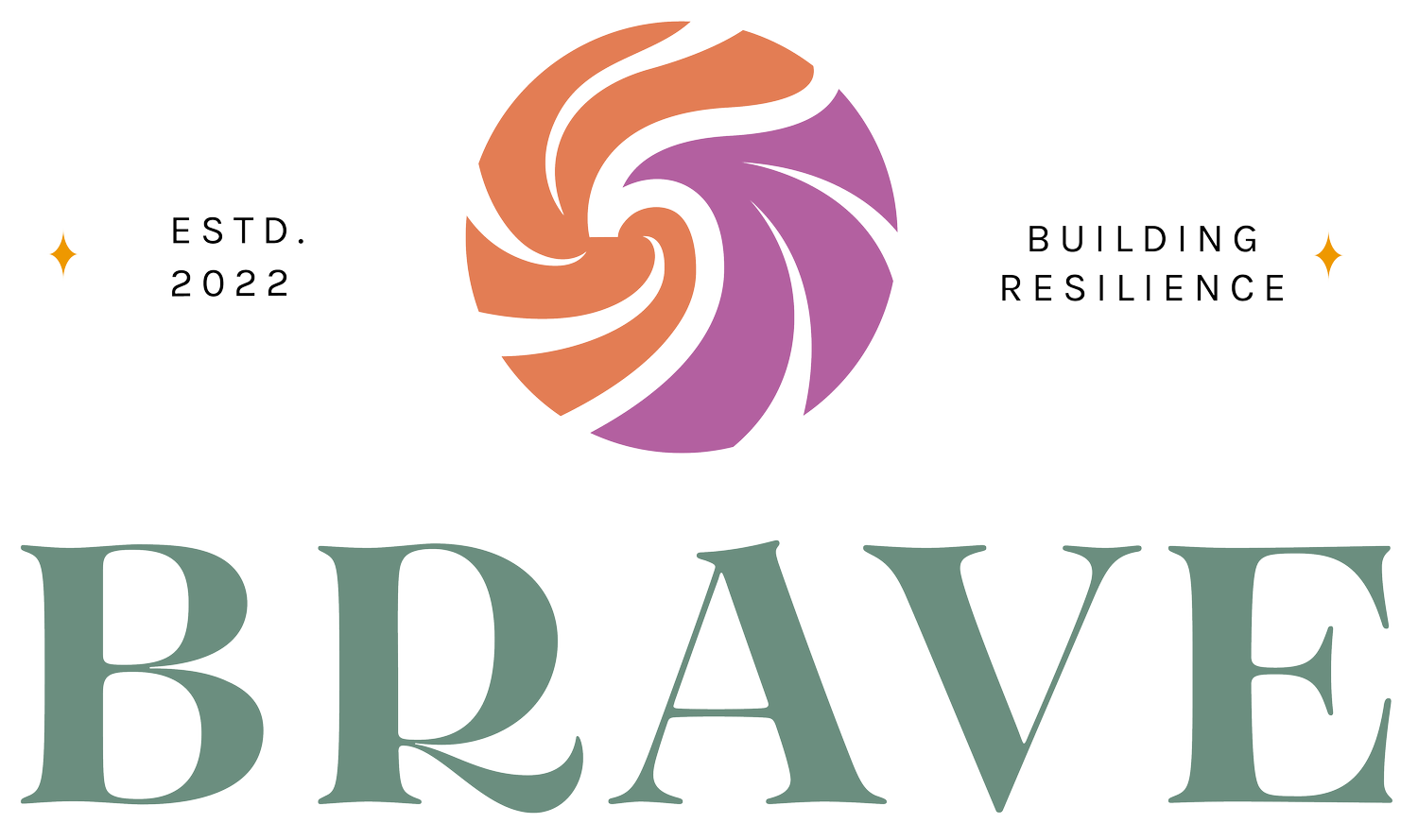Nurturing Resilience: Finding Support in Addressing Substance Use as a Trauma Therapist
Community, Resilience, and Substance Use - What’s the Connection?
You’re a trauma therapist, you know the weight of our work! It's not easy to hear the stories of pain and suffering day in and day out but we chose this path because this work matters. It is our duty to hold our clients’ stories, their struggles, and their resilience, all while striving to provide the best care possible.
There is one area that often leaves us feeling hesitant and fearful: addressing substance use. The complexities surrounding substance use in trauma therapy can be overwhelming, but it's crucial for us to confront this fear head-on.
That's why in part 4 of 4 of the podcast and blog series leading up to the 2nd annual Braving the Course event, Betsy is in the interviewer seat as she asks me about how connection and community help protect us in our work as trauma therapists (especially when we’re also working with substance use).
Keep reading, watch us in action below (and catch sight of our special guest!), or listen in your favorite podcast app.
Understanding the Link Between Trauma and Substance Use
As you well know from this blog/podcast series, and likely your daily work, trauma and substance use are deeply intertwined. Trauma survivors often turn to substances as a coping mechanism to numb their pain, alleviate distressing emotions, or regain a sense of control because they work really well for these things!
Our job as trauma therapists is to recognize this connection and understand its impact on therapy. By acknowledging the role of substance use in our clients' lives, we can effectively address the underlying trauma and support their healing journey.
Building Confidence: Practical Tips for Addressing Substance Use
When we choose to take the leap and begin to work with our clients’ problematic substance use, there are practical steps we can take to feel more equipped and confident in our approach:
1. Educate Yourself: Stay updated on the latest research, interventions, and best practices related to trauma and substance use. Continuous learning enables you to provide the most effective support to your clients.
2. Collaborate with Peers: Engage in case consultations and peer supervision to discuss challenging cases. By sharing insights and perspectives, you can gain fresh ideas and approaches to address substance use effectively.
3. Develop a Toolbox of Techniques: Explore evidence-based interventions that specifically address trauma and substance use. Equipping yourself with a variety of therapeutic techniques allows for flexibility in tailoring treatment plans to meet individual client needs.
4. Seek Clinical Supervision/Consultation: Regular supervision provides a safe space to discuss your own countertransference, process challenging emotions, and receive guidance from an experienced supervisor. This support is invaluable when working with clients dealing with substance use.
Celebrating Progress: Recognizing Small Changes and Victories in Therapy
Addressing substance use in trauma therapy is a journey, and it's important to acknowledge the small changes and victories along the way. By celebrating progress, we can inspire hope and motivation in ourselves and our clients, leading to the powerful experience of vicarious resilience.
Whether it's a client's commitment to attending therapy sessions regularly, a client showing up and telling you they don’t want to be there today, or the big moments of increased self-awareness, these steps are significant and pave the way for long-term recovery.
Embracing the Challenge and Finding Support in Your Journey
As trauma therapists, addressing substance use is a challenge we must embrace. By understanding the link between trauma and substance use, building confidence through education and collaboration, and celebrating progress, we can navigate this complex terrain without succumbing to burnout.
Remember, you are not alone in this journey - Betsy and I have worked hard to create supportive spaces for trauma therapists like you, starting with our free annual event, Braving the Course.
When you join us LIVE or on the REPLAY, we’ll take a deep dive into the concept of vicarious resilience and so you can truly thrive in your work as a trauma therapist!
Join our FREE event, Braving the Course on August 28th at 6pmCST.
